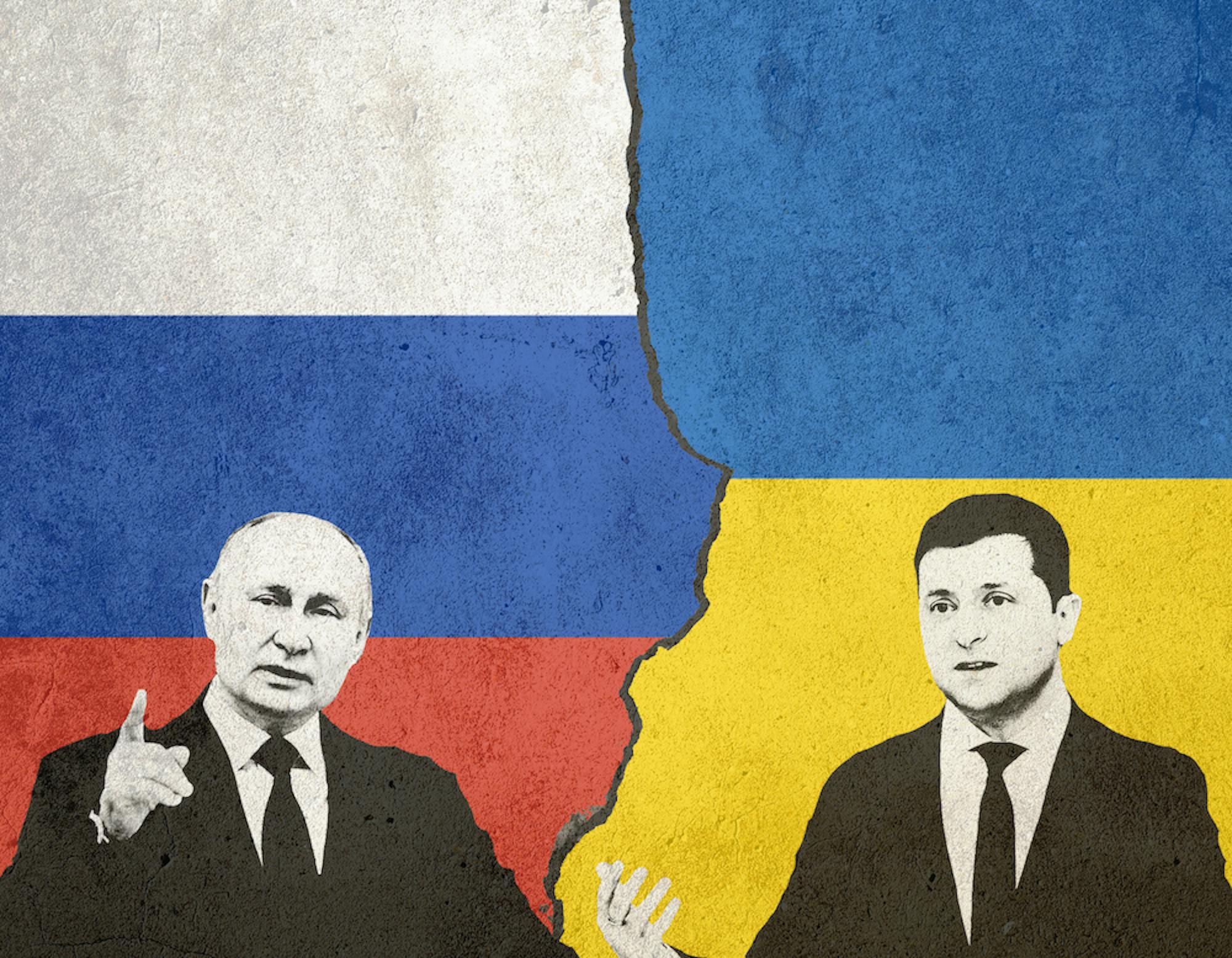President Vladimir Putin of Russia reportedly ordered troops to be deployed into the Donbas region in eastern Ukraine on Monday, a move that will likely further escalate the conflict between Russia and Ukraine.
Earlier in the day Putin signed a decree, officially recognizing the so-called Donetsk and Luhansk People’s Republics in eastern Ukraine. The area had been occupied by Russian-backed rebels since the 2014 Maidan revolution in Kiev, which saw the pro-Russian government ousted. The Biden administration responded by announcing economic sanctions against anyone who does business in the region.
White House Press Secretary Jen Psaki wrote in a statement that additional economic sanctions are planned “should Russia further invade Ukraine.”
Jeffrey Taliaferro, professor of political science with expertise in security studies and international relations, said that Putin’s escalation of the conflict is rooted in the country’s experience with the West since the demise of the Soviet Union in 1991.
“Post-Soviet Russia was plunged into a decade of economic turmoil and political turmoil while the United States began to expand NATO into the territory that Russia considered to be its near abroad,”Taliaferro said. “The fact that this alliance not only … continued to exist after the Soviet Union’s demise but had expanded to include the Soviet Union’s former client states and even three former Soviet republics — Latvia, Estonia and Lithuania — was seen by Vladimir Putin and many Russians as an insult, as a humiliation and as a threat."
Oxana Shevel, associate professor of political science with expertise in the post-Communist region, pointed out the resistance that Russia could face, should Putin decide to invade.
“There are going to be massive sanctions, international isolation, there could be discontent in Russia, because this war with Ukraine is not popular, unlike [the] annexation of Crimea, which was very popular,” Shevel said.
Shevel also wondered whether an invasion of Ukraine would help Putin reach any of his goals.
“He wants Western recognition of Russia’s special role in the region, generally, and in Ukraine, specifically. I don’t think ... invasion would accomplish him this,” Shevel said.
According to Putin, Russia’s special role in Ukraine is fraternal in nature. In July 2021, the Kremlin published an essay written by Putin, titled “On the Historical Unity of Russians and Ukrainians” in which Putin claims that Ukraine is the “Little Russia” to his own “Great Russia,” a claim rooted in the Kievan Rus empire that ruled the area in the 9th century.
While the two countries do share many cultural and historical ties, for many Ukrainians, the recent escalation of the conflict is likely to accelerate a process of de-identification from these ties, Shevel explains.
“It’s really ironic, I think, that given … Putin supposedly is trying to prevent Ukraine from joining NATO and turning away from Russia, … his policies actually accelerate that very possible development,” Shevel said.
A recent poll by the International Republican Institute found that a majority of Ukrainians now favor their country entering the European Union over a trade union with Russia and its allies.The poll also found that 54% of Ukrainians now favor joining NATO, whereas before 2014, the number stood around 25%, Shevel noted.
Ashley Aron, president of the Russian Slavic Central Asian Student Association (RSCA), said that the conflict likely would not cause tension among the club’s diverse membership.
“I’d hope that people would still be able to bond under their unique identities,” Aron, a senior, said. “Russia and Ukraine have technically been at war before. And I don't know if it's going to change as much because Ukrainians are, from my perception … very used to this concept of war.”
Another student, who is a member of RSCA and lives in the Russian/Slavic Culture House, said the conflict is not an issue that is typically talked about.
The student, who is Vietnamese-Ukrainian, grew up in Vietnam but spends their summers with relatives in Ukraine. They noted that their relatives experienced economic turmoil, as did many others in the region, after the 2014 revolution. Some of their friends joined the Ukrainian military and attended military school.
The student recounted how before the revolution, it was considered normal to speak Russian — they speak Russian with their friends. However, the developing nationalist movement changed this.
“People try to speak more Ukrainian,” they said. “If you go to the west of Ukraine, … I guess speaking Russian might not be the best thing you could do.”
Christopher Miller, assistant professor of international history at the Fletcher School and co-director of Fletcher’s Russia and Eurasia Program, said the escalation of this conflict relates to Ukraine deviating from Russian politics and society.
“Ukrainian politics and society are not becoming closer to Russia but the opposite,” Miller said. “Ukraine is developing in a direction that would make it less amenable to compromises with Russia in the future.”
Miller is not optimistic about relations between the two countries if Russia does not accept Ukraine’s wish for sovereignty.
“The problem is that Ukraine wants to be a sovereign country and Russia doesn't want it to be a sovereign country that can defend itself,” Miller said.
For the student, Ukraine finds itself in a difficult position between powerful countries.
“Ukraine, unfortunately, has been a really weak country over 30 years with instability [and] corruption,” they said. “It has never been able to stand on its own feet … in the middle of these superpowers. So, it has been pulled back left and right, left and right. And at this point, since it's getting pulled to the West too much, Russia’s pulling back.”
Asked if they believed Russia will escalate the conflict to all-out war, they expressed a common sentiment of uncertainty.
“I don't know what Russia wants to accomplish from actual bloody war. But we never know what Putin thinks, right?”
Editor’s note: Portions of this article have been updated and/or changed to reflect current practices regarding the safety of authors and/or sources as reflected in our policies mentioned here.






